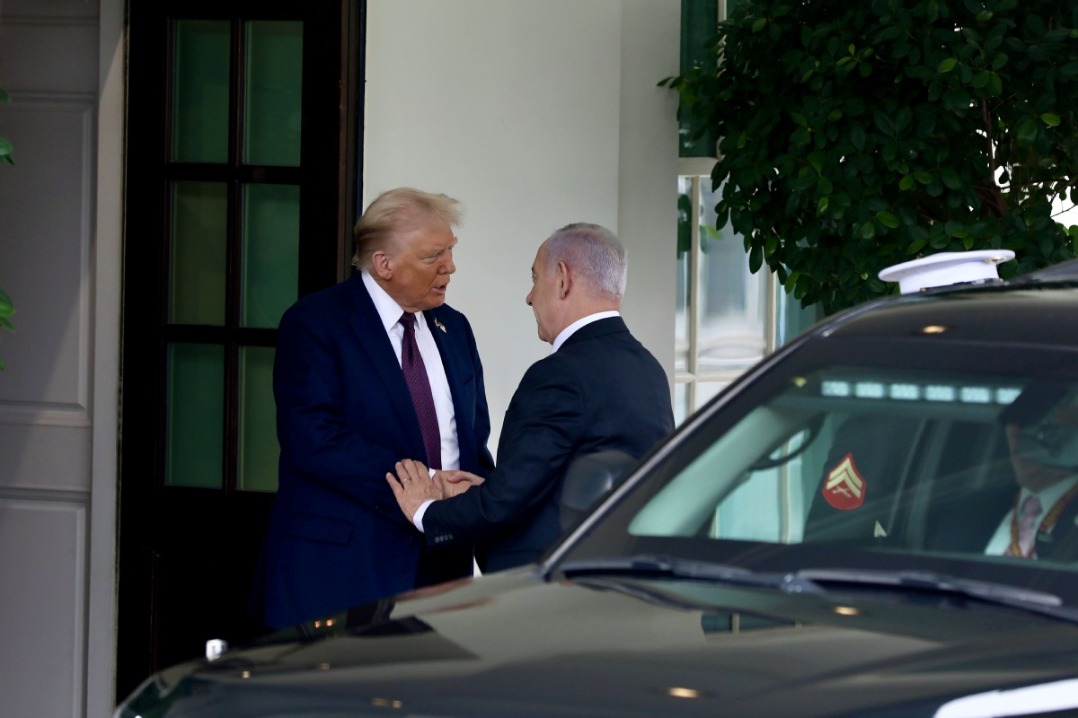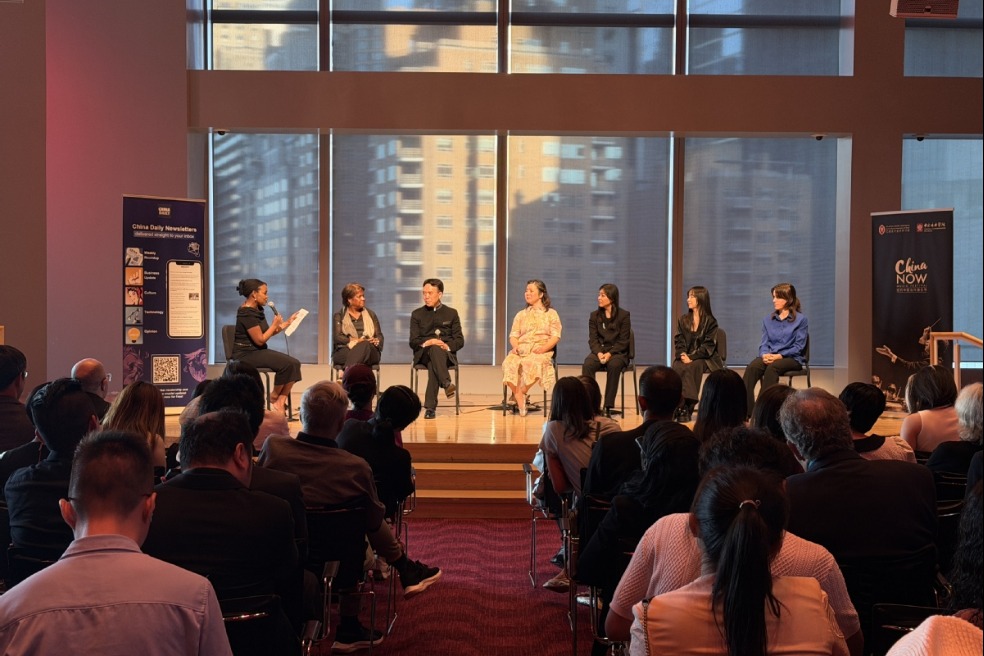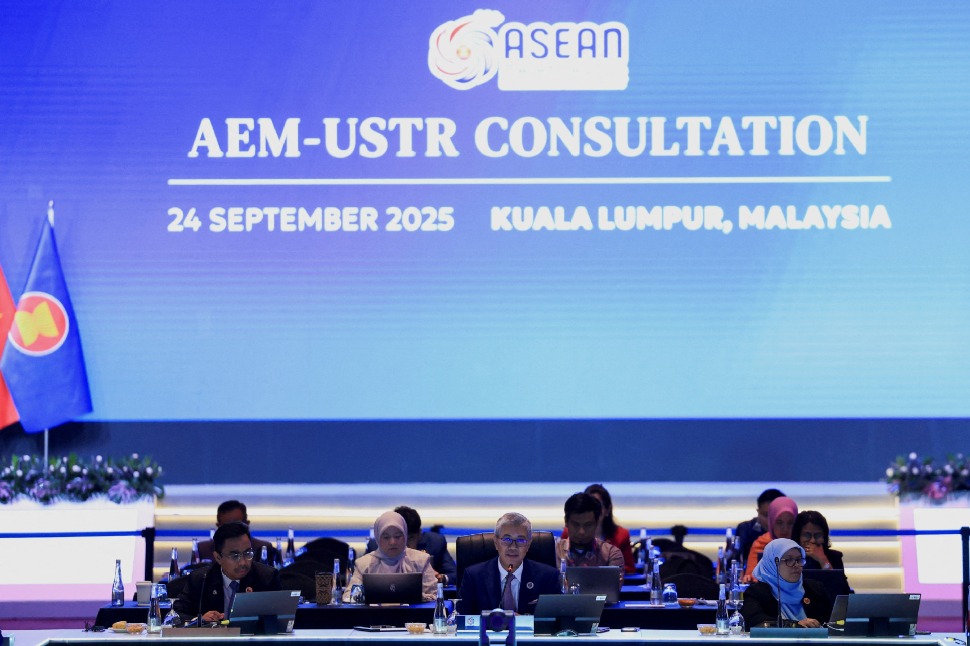Sanctioning Israel 'complicated' amid Gaza conflict efforts: UAE official


Sanctioning Israel is a "complicated legal situation", as Arab and United States mediators pursue de-escalation amid the raging Israeli assault on Gaza city, noted a visiting United Arab Emirates government official on Oct 2.
"If you want to put sanctions on a country, or even (the) United Nations sanctions, then you would need the UN Security Council's approval. Are you going to put certain states' sanctions on another state? Then you will have political and economic collisions and if you put sanctions (given) the huge American support for the Israelis, and Germany's support, how much of these sanctions will impact general situations? You need to look at it from different lenses," said Mohammed Ibrahim Al Dhaheri, director of the Strategy and Future Department at the UAE Ministry of Foreign Affairs.
"So for normal people, they would always see sanctions might be a solution. But if you look at politics and security, security will always come first," he added.
Al Dhaheri, who is also the deputy director general of the Anwar Gargash Diplomatic Academy, was responding to a question during a fireside chat titled "The UAE's Foreign Policy: Building Bridges, Shaping the Future", hosted by the Asia Society in collaboration with the UAE Consulate in Hong Kong.
Over the past few months, several countries have moved to sanction Israel over its conduct in Gaza, where at least 66,000 people have been killed, and more than 160,000 injured and where the United Nations had already declared famine amid a series of starvation-related deaths.
In July this year, at a gathering in Bogota, Colombia, at least 12 countries -- Bolivia, Colombia, Cuba, Indonesia, Iraq, Libya, Malaysia, Namibia, Nicaragua, Oman, Saint Vincent and the Grenadines and South Africa – committed to an arms embargo on Israel. In September, European Union Commission President Ursula von der Leyen proposed the suspension of trade concessions with Israel and sanctions on extremist Israeli ministers and violent settlers.
And most recently, German Chancellor Friedrich Merz delayed his government's decision on the EU's proposal to sanction Israel, Politico reported on Sept 30.
The UAE, which normalized ties with Israel in 2020 through the US-brokered Abraham Accords, earlier said any attempt to annex the West Bank would represent a "red line" in bilateral relations.
UAE's Lana Nusseibeh, assistant minister for political affairs and envoy of the minister of foreign affairs, reiterated the country's warning during her UN General Assembly address on Sept 27, adding that "nothing could justify" the displacement of civilians from Gaza and the West Bank.
Al Dhaheri acknowledged the complexity of the situation, saying, "it has been since 1948", as the ongoing conflict involves various aspects.
"You can't look at it from one dimension. It has a historical context. It has a religious, ideological context, so finding a two-state solution, which almost all of us agree on, (is) an end-game solution. But given the current situation, I mean the Qataris, Saudis, Americans, Europeans are pressuring both sides to compromise," said Al Dhaheri, referring to Israel and Palestinian militant group Hamas on reaching a compromise.
What he assured the audience was that the UAE, along with other Arab countries, have been spending a lot of time considering a de-escalation to the crisis and underscored that the UAE's foreign policy is that they are a country "that speaks to all countries".
"There is a deal on the table. It might not be the most sophisticated, nice deal that all parties can accept, but it has certain points we should start with," said Al Dhaheri, referring to US President Donald Trump's 20-point peace plan.
"If you want to reach a deal you need to compromise. You cannot reach a deal without compromising. So this is what I mean by starting somewhere and then building on it," he added.
He lamented that the situation in Gaza is devastating, but "this is the international politics as well that we have to deal with"
"We should save the lives of the people. We should release prisoners from both parties and then we should start somewhere. So I can assure you that the main players within the region, along with the US, have spent huge time discussing this on a daily basis, to move parties to compromise and to reach a deal," said Al Dhaheri.

































